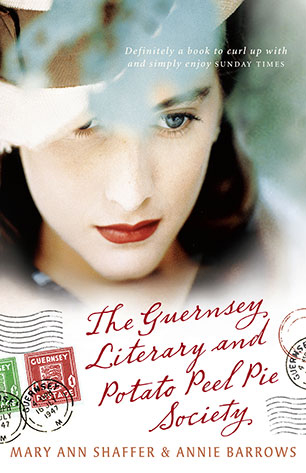

American historian Audrey Truschke, the author of Aurangzeb: The Man and the Myth, was on a lecture tour in India recently. Her lecture in Hyderabad was cancelled because some protesters had threatened to disrupt proceedings. As she posted on Facebook, the Hyderabad police apparently advised the organisers of the event that several individuals had “written letters protesting my appearance. I was especially looking forward to talking to Hyderabadis about Aurangzeb’s brutal assaults on sultanates in the Deccan in the 1680s and debates concerning what brought about the end of Indian Buddhism in the early second millennium CE.” This was reported in the New Indian Express of August.
Anyhow, disturbed as we should be about incidents such as these, it’s interesting to consider that letters, apart from being conveyors of complaints, threats and fake news, among other less-than-pleasant matters, are also an important element of style used by writers. I read a lovely one recently. It’s called The Guernsey Literary & Potato Peel Pie Society by Mary Ann Shaffer and Annie Barrows. Published first in 2008 by Bloomsbury, it was reprinted recently; it was also released as a film. In fact, I first saw the film on Netflix and was prompted to immediately read the book, although I had heard great things about it from a young friend quite a while back. To be honest, the title of the novel wasn’t exactly inviting, apart from being a challenge to remember — and that must be the stupidest reason for not picking up a book (more about this some other time!).
Guernsey is an island in the English Channel, part of the Channel Islands, off the coast of Normandy, and is a popular tourist resort. German troops occupied the Channel Islands during the Second World War. But just before they arrived, a majority of the residents of Guernsey, sent off their children to live with relatives and/or strangers in England, so they would be safe. At the end of the war, some children were never reunited with their families. When London was under threat of Nazi bombing, many children were evacuated to the countryside in a similar manner. Images of families saying goodbye to their children have been archived and the trauma that many of these children and their families suffered as a consequence of this decision has been written about. For instance, Goodnight Mr Tom by Michelle Magorian is specifically about children separated from their families.

The Germans, for some reason, considered Guernsey a strategic location and so their presence there endured and impacted on the lives of the locals during and after the war. Shaffer apparently visited Guernsey on a whim and was forced to extend her stay there because of the airport being shut down due to fog. She took the time to read about the place and its history and was so taken by what she read that she resolved to write about it. When she eventually did write this nearly-historical piece of brilliant fiction woven with the threads of letters exchanged between various characters, chiefly writer Juliet Ashton, her publisher Sidney Stark, a pig farmer Dawsey Adams and others, nearly 20 years had elapsed since her visit. Sadly, Shaffer died just before the book was published, and it was left to her niece, Annie Barrows, to complete it. Luckily, she was a fine writer herself, so her finishing touches did justice to the novel. All Shaffer knew was that it would be published in 13 countries.
As Steve Davies, writing in The Guardian of August 9, 2008, says so insightfully: “The Guernsey Literary & Potato Peel Pie Society commemorates beautiful spirits who pass through our midst and hunker undercover through brutal times. Shaffer’s Guernsey characters step from the past radiant with eccentricity and kindly humour, a comic version of the state of grace. They are innocents who have seen and suffered, without allowing evil to penetrate the rind of decency that guards their humanity…”
You are looking outward and, that you must not do now. No one can advise and help you, no one. There is only one way: Go within… Dig deep into yourself for a true answer.
“Guernsey’s dead will not return. Shaffer’s writing, with its delicately offbeat, self-deprecating stylishness, is exquisitely turned, bearing a clear debt to Jane Austen. She shows, in addition, an uncanny ability to evoke period, miming its manners and mannerisms — not only in the reminders of blitzed London but also in recreating a culture that reveres books. This is at the heart of the novel’s golden comedy. The rarity of books in 1946 reminds us of an age we have lost, of stint and thrift combined with greater amplitude of time. In such a culture, handwritten letters are precious personal gifts. Each book, meeting and letter has value, commands affectionate attention, and never comes cheap.”
The stylistic device used to tell the story — letters — defines it as an epistolary novel. But letters alone don’t make an epistolary novel: they can be any kind of documents, including electronic documents, such as diary entries, newspaper clippings, blogs and recordings. There are several epistolary works, both fiction and nonfiction. Among the earliest ones I read, as a child, was Daddy-Long-Legs by Jean Webster, first published in 1912 and still eminently readable. Of course, it is what some people would call a ‘girlie’ book, as also its sequel, Dear Enemy. Not so, Letters to a Young Poet by Rainer Maria Rilke (1875–1926). This is not fiction, not a novel, but a set of ten real, serious letters written by the Bohemian-Austrian poet and novelist to a young aspiring poet named Franz Xaver Kappus. What Rilke says is of relevance to everybody, even though he advises in the context of writing.

Remember, Rilke was only 28 when he started responding to Kappus’ correspondence. What does he say in the first letter? He says: “You ask whether your poems are good. You send them to publishers; you compare them with other poems; you are disturbed when certain publishers reject your attempts. Well now, since you have given me permission to advise you, I suggest that you give all that up. You are looking outward and, above all else, that you must not do now. No one can advise and help you, no one. There is only one way: Go within…Dig deep into yourself for a true answer.”
In the fourth letter, he writes: “I would like to beg of you, dear friend, as well as I can, to have patience with everything that remains unsolved in your heart. Try to love the questions themselves, like locked rooms and like books written in a foreign language. Do not now look for the answers. They cannot now be given to you because you could not live them. It is a question of experiencing everything.” Such fine sensibilities, such wonderful intuition. No wonder he was the poet he was.
Burrow a little and you will discover many epistolary works that will delight your sensibilities and assuage your soul. Do look for them and dip into a few.
The columnist is a children’s writer and senior journalist.





